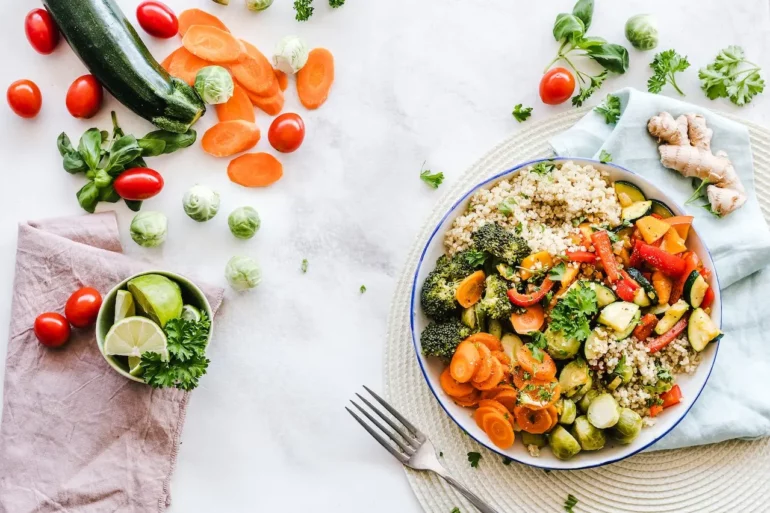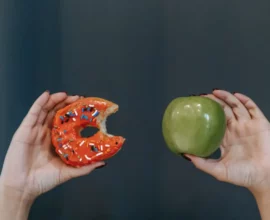Carbohydrates had always been ill-reputed as people mostly associate them with type 2 diabetes, weight gain, and many other health conditions.
Processed foods are indeed high in sugar and refined grains usually lack important essential vitamins and minerals. But many nutrient-dense, fiber-rich foods can be beneficial for you.
Though low-carb diets are useful for a few, there’s no need to avoid high-carb foods completely. In this article, we’ve identified the top 10 healthy high-carb foods.
- Oats
Oats are extremely healthy whole grains and an amazing source of multiple vitamins, minerals, and antioxidants. There are 70% carbs in raw oats.
A 1-cup of 81-gram serving comprises 54 grams of carbs, including 8 grams of fiber. They are quite high in a particular type of fiber called oat beta-glucan. Oats contain more protein than most grains.
Consumption of oats reduces the risk of heart disease by decreasing your cholesterol levels. It may also lower blood sugar levels, particularly among people with type 2 diabetes.
Moreover, oats are very filling and support healthy weight management.
- Quinoa
Quinoa is a nutritious seed that has gained immense popularity among health-conscious consumers.
Categorized as a pseudocereal, it’s a seed prepared and consumed like a grain.
There are 70% carbs in cooked quinoa. That makes it a high-carb food. It’s a good source of protein and fiber as well.
As quinoa is rich in many minerals and plant compounds, it has been linked to a wide range of health benefits, including better blood sugar management and cardiac health.
It’s a popular alternative to wheat for people on a gluten-free diet as it doesn’t contain any gluten.
As it’s comparatively high in fiber and protein, quinoa promotes healthy weight management and gut health.
- Bananas
A popular fruit that most of us love to use in various recipes is bananas. A large banana of 136 grams contains nearly 31 grams of carbs, either in the form of starches or sugars.
Bananas are incredibly rich in potassium and vitamins B6 and C, and also contain a lot of beneficial plant compounds. Their potassium content enables bananas to reduce blood pressure and boost heart health.
Unripe green bananas are higher in starch to transform into natural sugars as the bananas ripen, becoming yellow in the process. This ensures that you get extra starch and less sugar if you eat the bananas while they’re relatively less ripe. These bananas also contain substantial resistant starch and pectin to support digestive health and provide fuel for the useful bacteria within your gut.
- Buckwheat
Similar to quinoa, buckwheat is considered a pseudocereal as well. Remember that buckwheat isn’t related to wheat and is gluten-free.
There are 75 grams of carbs in raw buckwheat and cooked buckwheat groats comprise almost 19.9 grams of carbs in each 100-gram serving. As they contain both protein and fiber, buckwheat is highly nutritious.
It also has relatively more minerals and antioxidants than many other grains. That makes it particularly beneficial for cardiac health and blood sugar control.
- Beets
Beets are a purple root vegetable that’s often referred to as beetroots. Though their overall carb content isn’t high, they do have a lot for a non-starchy vegetable. Raw and cooked beets comprise nearly 10 grams of carbs per 100 grams, mostly from sugar and fiber.
They’re stuffed with vitamins and minerals apart from powerful antioxidants and plant compounds.
Beets are rich in inorganic nitrates too, which are converted into nitric oxide within your body. Nitric oxide reduces blood pressure and can minimize the risk of various diseases.
Due to their high nitrate content, athletes sometimes use beets to improve their physical performance as nitric oxide relaxes your blood vessels. This lets oxygen flow more efficiently during exercise.
- Sweet Potatoes
Sweet potatoes are incredibly delicious, nutritious tuber or root vegetables. A half cup of 100 grams of mashed, cooked sweet potatoes with their skin on comprise nearly 20.7 grams of carbs, consisting of starch, sugar, and fiber.
They’re a rich source of vitamin A, vitamin C, and potassium too. Moreover, they’re full of antioxidants, which are compounds to neutralize harmful free radicals inside your cells to prevent you from any chronic disease.
- Apples
Apples, popular for their sweet, tart flavor and crisp texture are available in multiple flavors, colors, and sizes. They usually contain nearly 14–16 grams of carbs per 100 grams.
Apples also contain many vitamins and minerals, though in small amounts only.
But they are a useful source of vitamin C, antioxidants, and fiber.
Apples may also offer multiple health benefits, including better blood sugar management and heart health. Including apples in your diet may reduce the risk of specific cancer types.
- Grapefruit
Citrus fruit with a sweet, sour, and bitter flavor is grapefruit, containing almost 8% carbs. It’s rich in multiple vitamins, minerals, and antioxidants.
Grapefruit improves heart health and boosts blood sugar management. Moreover, certain compounds in grapefruit prevent kidney stones, lower cholesterol levels, and even decelerate the growth and spread of cancer cells.
- Blueberries
A frequently marketed superfood because of its rich content of antioxidants is blueberries. Usually, they consist of water, as well as nearly 14.5 grams of carbs per 100 grams.
Additionally, blueberries contain high amounts of multiple vitamins and minerals, including vitamin C, vitamin K, and manganese. Blueberries are an amazing source of antioxidant compounds to protect your body against damaging free radicals. Consumption of blueberries improves memory among older adults
- Oranges
Another popular type of citrus fruit, the orange is primarily composed of water and comprises nearly 15.5 grams of carbs per 100-gram serving. They’re a good source of fiber too.
Oranges are categorically rich in vitamin C, potassium, and a few B vitamins. Moreover, they contain citric acid, apart from multiple potent plant compounds and antioxidants.
Consumption of oranges boosts heart health and prevents kidney stones. Additionally, they may increase the absorption of iron from other foods you eat, protecting you against iron deficiency anemia
Conclusion
These are the top ten high-carb foods that are incredibly healthy for most of us. You can live a healthier life by consuming them.



